G7 offers Ukraine wide-ranging security package at NATO summit
The Group of Seven (G7) countries have offered Ukraine a long-term and wide-ranging security package at the NATO summit as Kiev strives toward membership in the US-led Western military alliance.
Leaders of the world's most industrialized countries revealed a strategy on Wednesday, focusing on Ukraine's long-term security. The plan aims to bolster Ukraine’s military capabilities, transforming it into a robust military fortress to deter future cross-border military actions by Russia, Western media reported.
The package, which has a direct message to the Kremlin, was offered to Kiev on the second day of the two-day NATO summit in Lithuania as Ukrainian President Volodymyr Zelensky was meeting with NATO leaders at a summit of the 31-member Western military bloc.
NATO leaders on the first day of the summit declared that Ukraine's future lay inside the US-led alliance but rebuffed Zelensky's desperate call for setting a timeline for membership.
NATO's Article 5 stipulates that an attack on one member is an attack on all, which means that if Ukraine is added to the bloc while it is still at war, all NATO members must enter a full-fledge and direct war with Russia, and this is not the bloc's intention right now.
NATO has so far pointedly refrained from giving military assistance to Ukraine as an organization. Nevertheless, Ukraine has so far managed to reap rewards in the form of current and long-term security commitments it has lobbied for.
Britain, France, Germany and the United States have been in talks with Ukraine for the past several weeks over a multilateral text to establish a wide-ranging international framework.
The global package encompasses various elements, including advanced military equipment, such as fighter jets, as well as training, intelligence-sharing and cyber-defense.
"Today we are launching negotiations with Ukraine to formalize - through bilateral security commitments and arrangements aligned with this multilateral framework, in accordance with our respective legal and constitutional requirements - our enduring support to Ukraine as it defends its sovereignty and territorial integrity," the G7 countries said in a joint statement.
At the signing ceremony of the plan in Vilnius on Wednesday, US President Joe Biden hailed it as "a powerful statement of our commitment to Ukraine."
Zelensky, for his part, said, "Today there are security guarantees for Ukraine on the way to NATO...that shall be further extended through arrangements with our key partners. (Our) delegation is bringing home significant a security victory for Ukraine."
The G7, which comprises the US, Germany, Japan, France, Canada, Italy and Britain, as well as the European Union, further said in its declaration on Wednesday that said other countries could also sign on to make their own commitments, adding that the member states would begin bilateral talks with Kiev immediately.
The Ukrainian leader, in a separate presser, said that "the new document should be valid for as long as Ukraine is not in NATO."
"Today's declaration opens that possibility with strong bilateral agreements," Zelensky further said, adding that the best guarantee was still to be part of NATO itself.
In exchange, Ukraine would commit to reforms, including its judiciary and civilian control of the military.
Russia blasts G7's 'dangerous' move
Moscow was quick to blast the provocative move by G7, with Kremlin spokesman Dmitry Peskov calling the move misguided.
He also warned that it is "potentially very dangerous" for the West to give Ukraine security guarantees, stressing that the move would infringe on Russia's own security.
The war in Ukraine began after Russian President Vladimir Putin ordered the launch of a "special military operation" in the ex-Soviet republic on February 24, 2022 to “demilitarize” two eastern Ukrainian regions amid Kiev's vaulting ambitions to join NATO, which Moscow deems a redline.
In September 2022, Zelensky formally applied for a fast-track NATO membership and ruled out talks with Putin as the war entered its eighth month.
Moscow has repeatedly warned Ukraine against its NATO membership proposals, calling the move “purely destabilizing.” Russia has also warned the alliance against its further expansion toward its borders.
On Monday, Ukrainian Foreign Minister Dmytro Kuleba said that NATO member states had reached a consensus to drop the requirement for the Membership Action Plan (MAP) for Ukraine’s bid to join the alliance, meaning that Kiev has taken a key step toward membership.
MAP is a list of political, economic and military goals that other Eastern European nations had to meet before joining NATO.
US determined to send banned cluster bombs to Ukraine
On Friday, the White House said that the US would indeed supply internationally-banned cluster bombs to Ukraine to help its counteroffensive against Russian forces despite a global ban on the use of the controversial munitions.
Biden said that the decision to provide the munitions was "very difficult," but that Ukrainian forces were "running out of ammunition."
"They either have the weapons to stop the Russians now -- keep them from stopping the Ukrainian offensive through these areas -- or they don't. And I think they needed them," he said.
Cluster bombs are banned under the Convention on Cluster Munitions (CCM), an international treaty that addresses the humanitarian consequences and unacceptable harm caused to civilians by cluster munitions through a categorical prohibition and a framework for action.
Trump slams Biden over cluster bombs for Ukraine
Former US president Donald Trump warned on Tuesday that by sending banned cluster bombs to Ukraine the Biden administration is “dragging us further toward World War Three."
Biden “should be trying to end the war and stop the horrific death and destruction being caused by an incompetent administration,” Trump said in a statement posted on his Truth Social platform.
He said that unexploded cluster munitions “will be killing and maiming innocent Ukrainian men, women, and children for decades to come,” long after the war has ended.
“Joe Biden is needlessly and dangerously leading us into World War Three, which would be a nightmare beyond imagination—obliteration!” Trump said.
Since the beginning of the Ukraine war, US media have regularly reported on the weapons shipments sent by the US to boost Kiev's fighting forces, with other NATO members delivering tens of billions in military aid, as well.
By January, the US and its allies had provided Ukraine with over 100 million rounds of small arms ammunition, over a million rounds of artillery shells, and more than 100,000 tank rounds.
Russia sees the flooding of Ukraine with weapons from the West as a futile effort to change the outcome of the war. Moscow says supplying Kiev with more weapons will only add to the death and destruction and prolong the conflict.
Suicides among Israeli forces surge amid Gaza war
Gen. Soleimani turned threats into opportunities and fortified resistance axis
Houthi: General Soleimani thwarted US conspiracies in West Asia
Islamic Jihad prevents Israeli captive from taking own life
Pezeshkian: We will continue path of Gen. Soleimani with power
Israel forces make incursion into Lebanese town, torch homes
Israeli settlers raid al-Aqsa Mosque amid restrictions on Muslims
President Deby: French troops will leave Chad by end of January


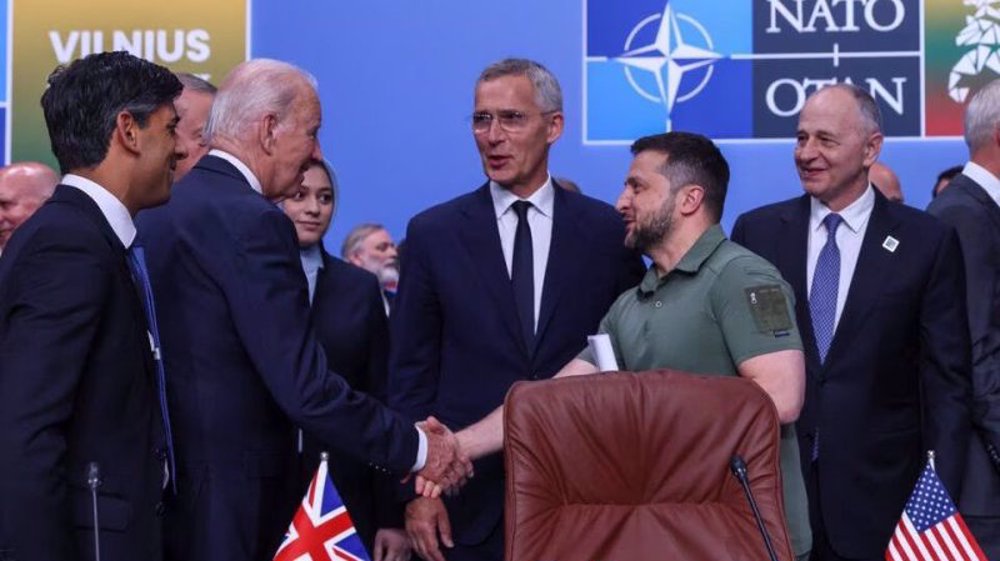
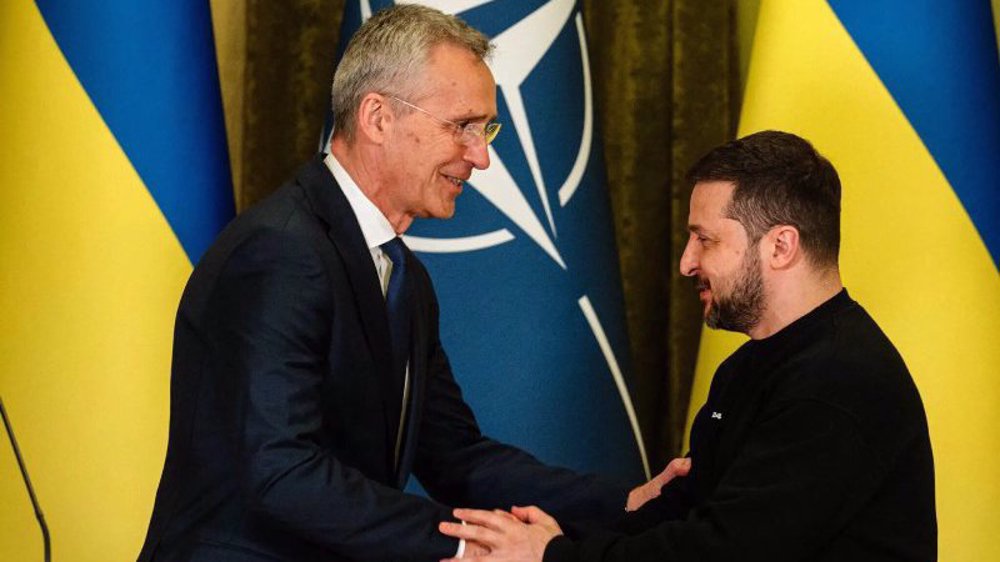
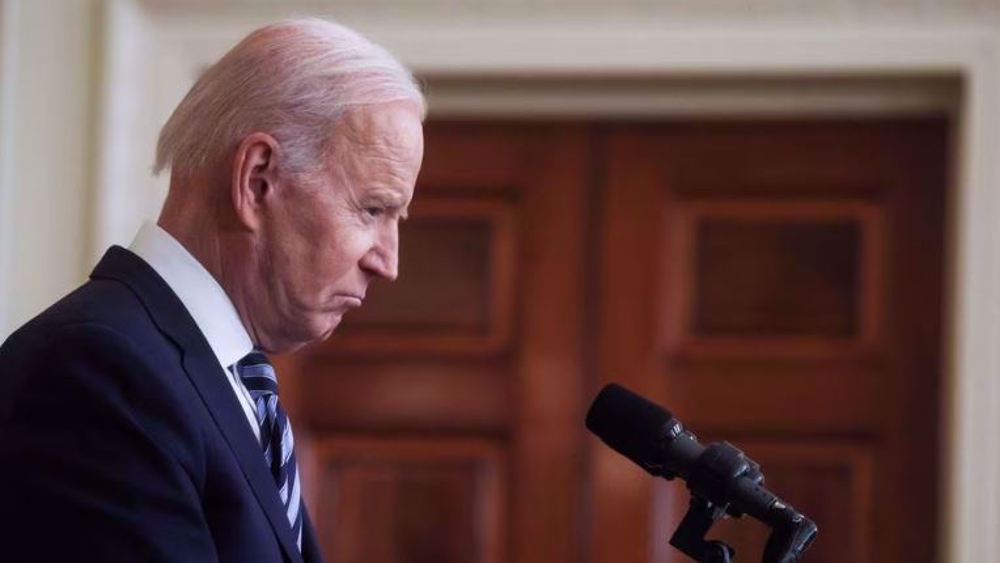
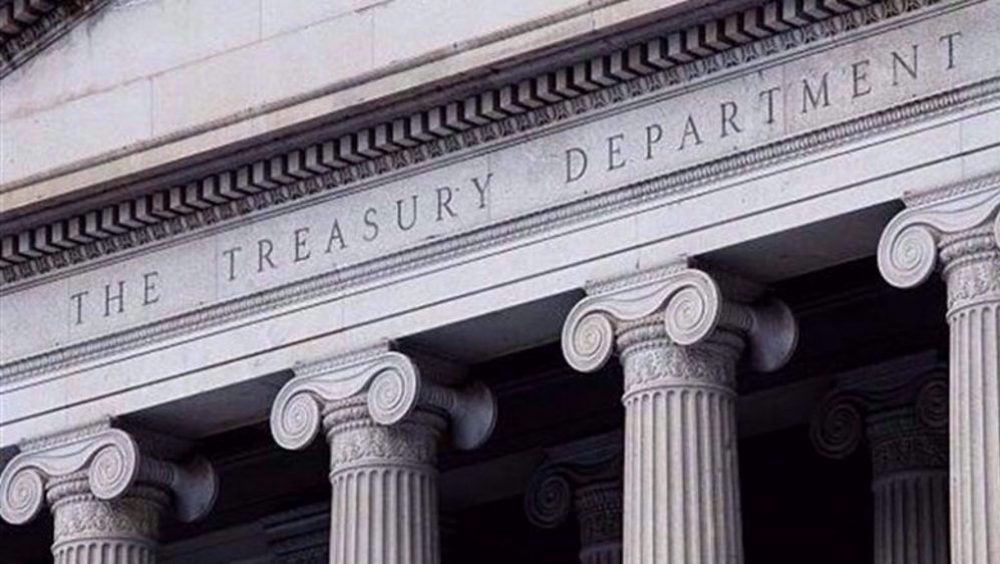
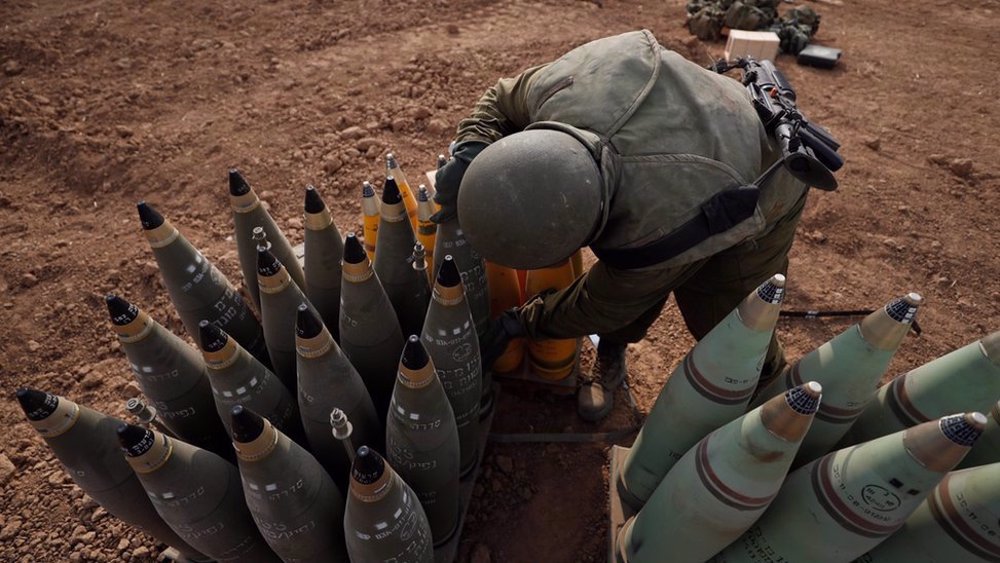
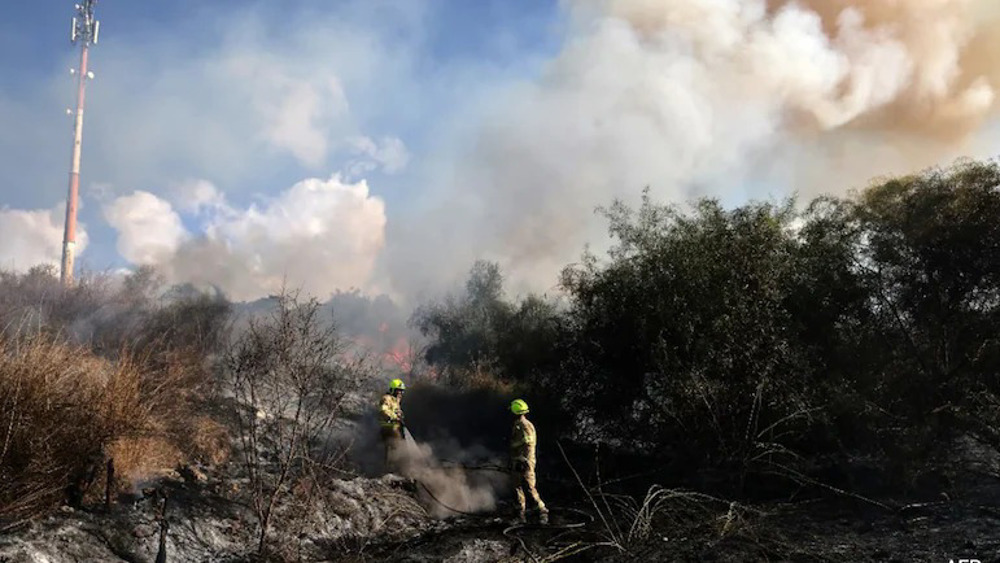




 This makes it easy to access the Press TV website
This makes it easy to access the Press TV website